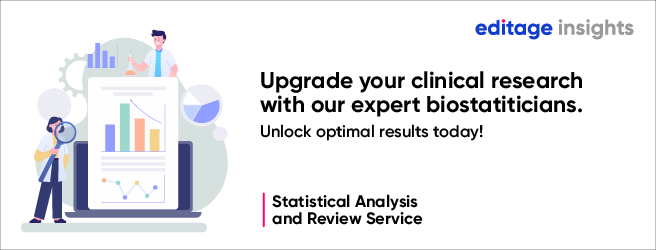Dr Haidy Effat on the importance of biostatistics and biostatisticians in clinical research

In a recent webinar “Data-Driven Decision Making: How Biostatistics Can Enhance Institutional Performance and Efficiency” for deans, professors, and faculty in Saudi Arabia, Dr Haidy Effat explored the role of biostatistics in data-driven decision making for academic and healthcare institutions.
Haidy is an Associate Professor of Pharmacology and Toxicology at Ain Shams University, Egypt. With a Scopus h-index of 10, Haidy has published extensively in the areas of neuropharmacology, wound healing, and protection against the side effects associated with the administration of chemotherapeutic drugs. She is also a renowned reviewer for several reputable international journals, including Toxicology, Immunopharmacology and Immunotoxicology, and Current Drug Targets.
In this webinar, Haidy explained the impact of biostatistics on institutional decision making, with practical case studies, and provided an overview of the challenges and opportunities of applying biostatistics in different institutional settings. Below, she offers further insights into how biostatistics and biostatisticians can enhance the quality of clinical research as well as patient care.
What is biostatistics?
Biostatistics deals with statistics and biology. Traditional statistical strategies are applicable in clinical trials and public health to improve accuracy.
Biostatisticians are not only experts behind the science but also attentively notice deficiencies. They help determine if a specific treatment is safe and effective or the reason for a particular disease.
A progressive outlook is also required to get the desired information from data clusters. In simple words, a biostatistician is a driving force that transforms public health-related data into an understandable form to facilitate its application.
Biostatistics assists the medical research industry to safeguard public health on both small and large scales. By integrating quantitative capabilities, biostatisticians collaborate with biomedical experimenters to specify and solve health issues that threaten public health and quality of life.
From analyzing health issues related to air quality to planning and examining cancer studies, biostatisticians help make decisions based on evidence.
Importance of Biostatistics in Clinical Research and Public Health
Design and development of research framework
In general, biostatisticians are appointed in a clinical research study in the initial phase to assist the research team in analyzing objectives, methods of data analysis, and overall study design for better outcomes. A vital component of study design instance is the sample size. A tiny sample can lead to underpowered research with inconclusive results. In contrast, an excessively large sample is a waste of time and resources.
Data monitoring and management
Biostatisticians assist in the formulation of data management plans and identify potential flaws in data collection. Unfortunately, this introduces a high level of tangibility in data collection and analysis.
Data analysis and reporting
Biostatisticians take collected data as a facet of clinical research study and employ statistical techniques to draw conclusions from that data and report unusual data trends. Clinical research reporting includes statistical methods and briefing of the method, data interpretations, and visual representation as a part of the collaborative process between biostatisticians and researchers.
Clinical trials
Biostatistics shape the procedure of clinical trials. Trials looking to gauge patient outcomes based on new diagnostic methods and treatment use biostatistics to ensure credibility. About this link, biostatisticians work hard to design clinical trials that enable accurate data collection methods. Clinical research is the backbone of the medical industry; it is behind all discoveries in biomedicine, from vaccine efficiency to analyses of clinical arbitration influencing public health.
Enriching patient care
On a local level, biostatistics can even positively influence patient care. Statistics derived from studies can be assessed and then shape a more efficient healthcare system or individualized patient schemes to improve patient outcomes. Evidence-based and data-driven care practices are needed to create a patient-centered model of care, curtailing the risk of ineffectual patient care and unsuccessful treatments.
Data trends
Biostatistics does not always imply scientific analysis of available data. Sometimes it can mean meta-analysis of data. For example, evaluating clinical diseases around specific health disorders can generate statistical data trends around essential risk factors, anticipated lifespan, and potential genetic and environmental factors. This kind of data-centric information can be used to modify potential treatment methods in order to improve patient outcomes.
Epidemiological studies
Data analyzed by biostatisticians assist progress in epidemiology, the backbone of preventive care and the main component in public health policies. The biostatistician supervises the link between the causes and effects of the disease or the factors that affect the spread of disease. Biostatistics can also indicate a lack of correlation among hypothetical causes of a disease, enabling scientists to shift their focus and eliminate any potential risk factors.
Would you like a 1:1 consultation with an expert statistician? Check out Editage’s Statistical Analysis & Review Service.
Comments
You're looking to give wings to your academic career and publication journey. We like that!
Why don't we give you complete access! Create a free account and get unlimited access to all resources & a vibrant researcher community.











